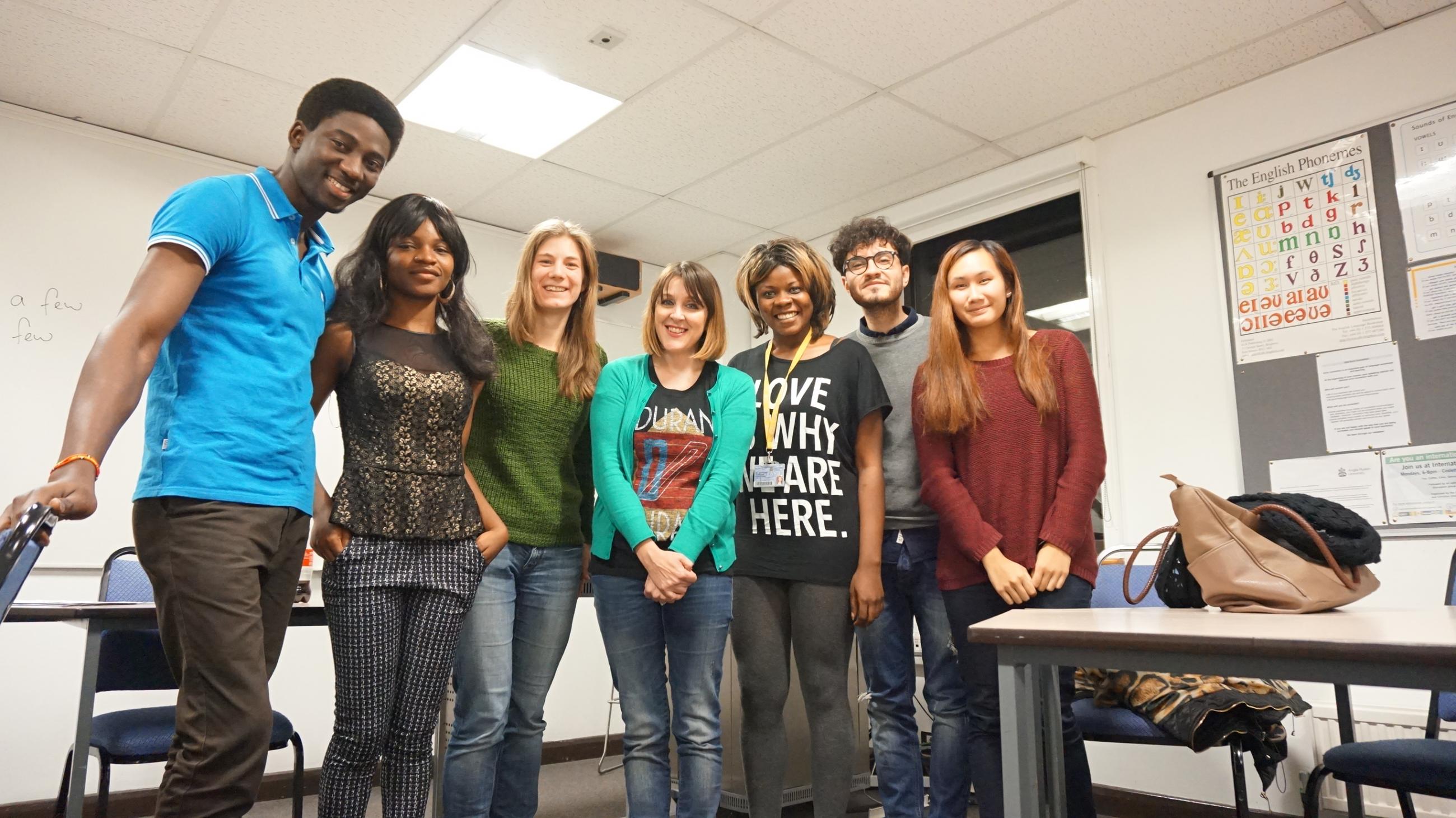Eurocampus Experience Part 2: Melvis Fozoung Alemazung

Thinking Back About the Eurocampus: Positive and Negative Memories
The Eurocampus programme has come and gone, yet it left me with so many memorable moments of which are positive and negative. One thing I will always remember about the programme is the cultural diversity of the class. As an African student, I participated in the programme, thanks to my home university, Tallinn University, and I could identify this as a starting point of my intercultural dialogue with students from other participating universities who were all whites. Each time they started a conversation, they always asked me which university am coming from and my nationality, before asking other questions like how does Estonian culture differ from yours, how long are you going to stay there, etc. This was an amazing way to start up a dialogue and I also learnt a lot about other cultures during the interaction, which was a positive experience because I could have not had such an experience without participating in the Eurocampus. Another positive memory are the dinners we (the students) organised during the weekends, which also provoked interaction and were fun, as we often started a conversation about what kind of foods we have in our home countries. As a result we get to know the foods of different countries as well as its components. A negative memory of the Eurocampus are the complaints by students during the programme. This was noticed when students complaint about the course materials, class arrangement (group work), grades, etc. This sometimes led to misunderstandings and divided opinions in the classroom. Apart from this negative aspect, the programme was generally awesome with amazing experiences.
Most Influential Courses
All the courses taught during the programme were interesting and have influenced me but if I have to choose the most influential ones, then there ate three courses. First Linguistic Landscape, because it made me to be aware of my environment. After the course I became very sensitive to my environment and tried to identify every Linguistic Landscape element in every neighborhood I find myself and I find this very interesting since I was ignorant of these things before. Also, the teaching style was practical: we saw examples of what was taught in class in our surroundings, meaning that we did not only learn it but we could see or experience them around us every day. Secondly, Crossing Boundaries: Modes of Communication was another course that influenced me. It introduced the concept of lingua receptiva which I sometimes practice (French and English) but did not know it is called lingua receptiva (LaRa). For instance as an English speaker I could have a successful conversation with a French speaker since French is my passive language. The French speaker speaks in French and I respond in English (lingua receptiva). The same thing can happen to German and Dutch or Spanish and Italian speakers. A practical exercise was done in class and it was amazing. Lastly Linguistic Awareness of Culture had an influence on me because it gave me the mindset not to judge people based on my culture but to be aware that when people from two different cultures meet, their interaction is influenced by their cultures and as a result one cannot judge another base on his/her cultural background but rather be aware that the other comes from a different culture and might do things differently from other cultures. I think the content of the Eurocampus semester is useful for the labor market because most of its courses were related to intercultural communication which is essential in the world today. For example, if you have to work as an expat you must have intercultural skills to manage an organization where ever you find yourself. During the semester we had a course in Intercultural Management with one of its objectives to recognize the relationship between cultural values and communication styles as they affect intercultural communication of managers, personnel and clients of multicultural organisations. We also learnt in the course, the 3L’s necessary for a successful intercultural communication which is Listening, Learn and Love, thus they are important criteria for expats. Another objective was to develop skills relevant to managers of multinational corporations, as well as those operating in other dimensions of business. These are very important requirements in the labor market.
The Eurocampus Programme Connectedness with Intercultural Communication Module at Tallinn University
The programme is also connected to the Communication Management programme at Tallinn University since some of its courses are related to the university's curriculum, like the courses in Intercultural Management and Cultural Diversity and Human Rights. I recommend the Eurocampus programme to all MA students of Intercultural Communication at Tallinn University. The programme creates a forum for intercultural interaction since many of the participants come from universities all around Europe. Another reason I am recommending the program is because cultural diversity is the world we live in today and as a result we need not only to acquire intercultural skills, but also learn how to use it through interaction with people from different cultures. It was awesome to work with students from different cultures during the Eurocampus. Students were often given group assignments and lecturers made sure that each group composed of members from different university/nationality.
Recommendation
To TU I recommend that class hours should be limited to 4 hours per day and not 6 hours as it was in Cambridge. Also field trips should be organised. I would like to use this opportunity to thank the Tallinn University Baltic Film, Media, Arts and Communication School , for giving me the opportunity to participate in the programme and also Anglia Ruskin University, Cambridge for hosting me. I feel privileged to have participated in Eurocampus 2015.
Text by Melvis Fozoung Alemazung.
Read more about the Communication Management programme and admission requirements from our webpage.
Ask our student ambassadors what they think about the programme: tlu.ee/ambassadors.